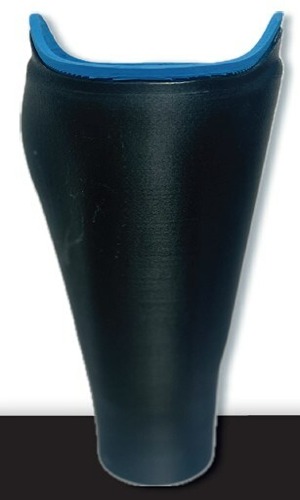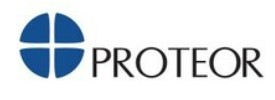
DIJON, France, Apr 21, 2025 – PROTEOR has announced the expansion of its digital solutions and a pioneering technology: The production of non-vase mode definitive sockets via 3D printing fabrication.
This new definitive socket utilizes a proprietary material, KyronMAX, developed through a partnership with Mitsubishi Chemical Group. This material offers increased tensile strength and toughness, enabling 3D printed PROTEOR sockets to exceed ISO 10328 standards when utilizing the PROTEOR ICARUS 3D printer. PROTEOR employs 3D printing to deliver clinical efficiency and a custom fit for each person while maintaining quality and durability. By adding a non-vase mode design, PROTEOR meets both technical standards and practical needs.

“We are committed to providing our customers with the most advanced 3D printing technologies available today – including the highest-quality filaments available,” said Mike Gorski, general manager, PROTEOR. “PROTEOR is delivering what the industry has been waiting for – in-house 3D Printed Definitive sockets with a streamlined workflow process. In this industry, I have learned a lot from our customers on how this process needs to be simplified. After the acquisition of Filament Innovations, I brought this knowledge to PROTEOR, and the teams created a streamlined workflow process around definitive sockets. Utilizing the ORTEN software, an ICARUS 3D Printer, and KyronMAX material, definitive prosthetic sockets can now be 3D printed in-house within a few hours. This is the technological revolution the industry has been waiting for. I am thrilled to announce there is no more wait, this technology is ready today and has been scientifically validated.”
This development reflects PROTEOR’s focus on advancing technology in orthotics and prosthetics (O&P). The non-vase mode design supports integrating enhanced technology into everyday clinical practice.
To support the digital future, the company will launch PROTEOR Digital Suite in May 2025. This platform includes innovations in scanning, software, and printing services. The integrated system aims to streamline both patient outcomes and clinical efficiency.
Source: PROTEOR
About PROTEOR

PROTEOR, established in 1913 and based in Dijon, France, provides orthopedic medical devices. The company specializes in custom-made prostheses and orthoses, orthopedic parts, and digital solutions for orthotists and prosthetists. Serving the medical equipment manufacturing industry, PROTEOR operates through a network of orthopedic centers and has factories in France and the United States. As of November 2024, PROTEOR reported annual revenue of about $750 million. The company employs around 1,000 people worldwide and remains majority owned by the founding Pierron family. ARDIAN Growth and BNP Paribas Dévelopment have also invested to support its international growth.
About Mitsubishi Chemical Group

Mitsubishi Chemical Group, headquartered in Tokyo, Japan, is a leader in performance materials and specialty chemicals. It serves sectors such as automotive, electronics, healthcare, packaging, and construction. The company offers products including advanced polymers, performance chemicals, functional food ingredients, and pharmaceutical materials. With a focus on innovation and sustainability, Mitsubishi Chemical Group supports key industries in developing solutions that improve energy efficiency, safety, and environmental performance. The company traces its roots back to 1933 and formed its current structure through various mergers and reorganizations, most recently under the Mitsubishi Chemical Holdings umbrella. It operates with more than 300 subsidiaries and affiliates worldwide. As of fiscal year 2024, Mitsubishi Chemical Group reported consolidated annual revenue of approximately ¥4.39 trillion (around $30.4 billion USD). The group employs about 66,500 individuals globally. It continues to expand its global footprint while driving innovation in sustainable materials and life sciences.
